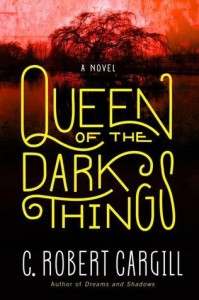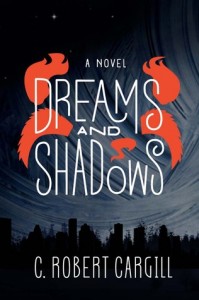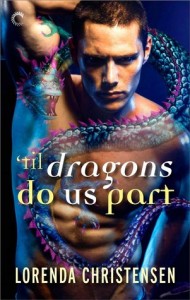 Format read:
Format read: ebook provided by the publisher via NetGalley
Formats available: ebook
Genre: paranormal romance
Series: Never Deal With Dragons, #3
Length: 179 pages
Publisher: Carina Press
Date Released: October 27, 2014
Purchasing Info: Author’s Website,
Publisher’s Website,
Goodreads,
Amazon,
Barnes & Noble,
Kobo
Savannah Cavenaugh became a top art thief thanks to a secret ability—a dragonmorph, she can literally fly away from the scene of the crime. Next up: stealing a priceless painting out from under the snout of Lord Relobu, North America’s fearsome dragon ruler. True, she’s never had to work in the midst of Earth’s most polarizing nuptials before. Keeping her identity hidden will demand she get creative, to say the least.
Cameron Shaw has one last chance to prove himself. As Lord Relobu’s interim security head, he’ll ensure the world’s first interspecies wedding happens without a hitch. That means keeping an extra close eye on the wedding planner’s pretty young assistant. She’s adorable, but something’s not quite right.
Fumbling her way through bouquets and linens turns out to be the least of Savannah’s problems. Crushing on Relobu’s hottest human henchman was not part of the plan, and neither was revealing her—ahem—ferocious side. But when her archrival shows up to nab the very same painting she’s after, all bets are off…
Our Review:
 Cass: First things first, I (quite unexpectedly) adored Never Deal With Dragons. Myrna was a far cry from the usual UF/PNR heroine. She wasn’t The One, didn’t specialize in Snapping Necks and Breaking Balls, and wasn’t burdened by a Tragic Past.
Cass: First things first, I (quite unexpectedly) adored Never Deal With Dragons. Myrna was a far cry from the usual UF/PNR heroine. She wasn’t The One, didn’t specialize in Snapping Necks and Breaking Balls, and wasn’t burdened by a Tragic Past.
Instead, Myrna was just a brilliant, accomplished, career woman who loved her work (if not her boss). She kicked ass negotiating with dragons – without actually kicking dragon asses.
Despite this love, the blurb did not fill me with confidence. Pro: More time with Myrna and Trian. Con: everything else.
Marlene: I read Never Deal with Dragons because Cass made me do it. I figured that any romance that she actually liked must be good. And she was right. It was good, fun, and often funny. I loved the idea of a heroine who kicked butt with her mind instead of her brawn. However, the second book Dancing with Dragons (ranted at, ahem, reviewed here) did not live up to the first one. I made Cass read Til Dragons Do Us Part in the hope that Dancing with Dragons represented a sophomore slump. Admittedly, once I read the blurb, I didn’t have much hope. I figured that we would at least get a good rant out of it. And here we are. RANTING!
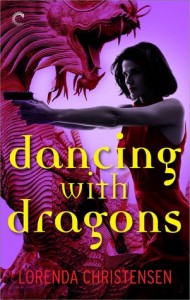 Cass: Liar! You wanted to bask in my disgust and outrage. Also, I completely and utterly forgot how much I hated Carol in the second book. So utterly useless.
Cass: Liar! You wanted to bask in my disgust and outrage. Also, I completely and utterly forgot how much I hated Carol in the second book. So utterly useless.
Let us start with Savannah and her Family Of Thieves. Namely her sister-in-law, a renowned chef, at the top of her game who decided to turn to a life of crime. Why? Because this one time a dragon was totally mean, and insulted how she cooked steak! (Side note: did it not occur to her that a dragon might prefer his meat seared rather than medium-well?)
Why use your expertise and fame to do what you love? Much more logical to become the operations manager behind a small-time theft ring. God knows all women base their career trajectories on one run-in with a douchebag client.
Of course we ultimately can’t have a Law Breaker for a heroine (only dude-bro romantic bad-boy leads are allowed to break laws), so Savannah & Co must See The Light and Renounce Their Criminal Pasts. Perhaps they realize that a michelin starred chef can bring in mountains of legitimate money. Or there could be a “Tragic” Medical Issue for Baby Thief which will awaken them to the inherent evil they are bringing into a child’s life. Dragging a kid willy-nilly all over the country is completely within the best interests of said child. Taking a child to a medical facility to receive basic care on a consistent basis, however, results in a huge existential crisis. WHAT HAVE WE BEEN DOING WITH OUR LIVES?!?!
Marlene: People have been known to base their career trajectories on experiencing a series of douchebag clients or bosses. But generally not on just one. I digress.
It seems like sister-in-law the chef gave up her fantastic career for “true love”, another trope that Cass hates with a vengeance. I can understand helping one particularly hot (and charming) thief do something nasty but ultimately harmless to get back at said douchebag client, but not giving up an entire career. Unless we’re missing an explanation here, which we generally are in this book.
That this version of the universes has no insurance to speak about, and that procedures need to be paid in cash, was a nice bit of worldbuilding, which there aren’t nearly enough of. However, the existential crisis that ensues is over-the-top. Their only options are presented as “go straight” and cash in the retirement fund, or steal the painting and use the proceeds to pay for the medical crisis. While the crisis proceeds semi-logically from its introduction as the baby needs constant medical supervision, which is awkward when mom and dad are perpetually on the lam and lying about their identities, said medical crisis was not the only way to deal with all the adults deciding to go straight.
Cass: Setting aside the paper-thin motivations for thieving in general, let’s focus on the caper at issue. Savannah, a dragon-morph, grew up utterly isolated and thinking she was a lone freak in a hostile world. Then, lo-and-behold, she learns of Trian, dragon morph extraordinaire from Never Deal with Dragons.
Expected response: Holy shit, I am not alone in the universe! I must meet this guy and see if there are any social, psychological, or emotional benefits to having a friend who is of my species. He might also be excited to learn about my existence. We could share our First Transformation stories, talk logistics of controlling the shift, and maybe make arrangements for proper medical care. This could change my life!
Savannah’s response: Guess I’ll just rob him, during his wedding, for which he and his fiance are receiving multiple terroristic death threats.
Marlene: The caper that was, wasn’t, was, wasn’t. Well it wasn’t much of a caper, it seemed like its purpose in the story was to give Savannah an additional reason for giving up her life of crime and introducing us to the Boss From Hell. Working in that bridal agency would be enough motivation to never work anywhere in the industry again, just to avoid any possibility of running into the self-centered bitch who owned the place. She came off as a caricature of driven career-women everywhere, and I hated every moment she was onscreen. Meeting her should have driven Savannah right back to a life of crime, but instead it helped her “bond” with the other women she worked with. Which actually might happen, but in Savannah’s shoes I’d be counting the days until I was out of Tulsa and away from the wedding planner bitch and any legitimate work for a long time.
Cass: Marlene, I know you want to talk “romance.” But seriously, who the fuck is this guy? Why do I care about him? Hell, why does she even care about him? He’s about as interesting as a glass of milk. On that note, why is Mr. Whole Milk interested in her? There was no spark. No chemistry. No nothing. In fact, I can’t even remember his name. Did they have sex? Hell if I know. If they did, it was damn boring and I fell asleep reading it.
Marlene: I do not want to talk romance in this book, because there isn’t much to talk about, except to wonder where the chemistry went. The married couple have more chemistry than Savannah and what’s his name. (which is actually Cameron Shaw, and yes, they do manage to have sex, and it was a complete yawn, as well as a fade to black.) His whole purpose in this story seems to be to motivate Savannah to go straight. He’s not just Mr. Whole Milk, but he’s Mr. Whole Milk who has a record of being on the wrong end of Savannah’s art thievery. Otherwise he has no distinguishing features.
Cass: I saved the worst offense for last. WHERE ARE MY DRAGONS?! For a book set in a world that has humans and dragons co-existing in a never-endingly complicated political and social quagmire (basically the highlight of the first two books), we spend almost no time focused on any actual dragon issue. Are there any people in the world at all curious as to how dragon morphs are created? Is it viral? Environmental exposure in utero? A recessive genetic trait? Anyone? Bueller?
Escape Rating: D for denying me sufficient dragons. Never Deal with Dragons was amazing. I am going to re-read it to get the taste of this out of my mouth. The DRACIM world has so many amazing stories in it, I just hope the author gets around to telling us some of them.
Marlene: Galen described Cass’ part of this review as a “Cass Rant ™” and I have to agree with his assessment. I also have to agree with Cass’ rant in general. Never Deal with Dragons was awesome. I read Til Dragons Do Us Part and couldn’t wait to be parted from it. I found it to be completely and utterly “meh”. This is not a good thing.
Escape Rating C-: which is totally in keeping with that ‘meh’. It’s not horrible, there just isn’t much there there. Or there here. Whatever. To give either a higher or lower rating, I’d need to have more reaction than this. Myrna was awesome in the first book. Carol was too stupid to live in the second book. Savannah is perfectly named; she’s a boring grassland with no distinguishing features.
Cass: Note to Galen: “Cass Rant ™” was spurred by Marlene’s insistence I read this. Which I had every intention of ignoring. So maybe we should call it Cass Rant On Demand ™”
***FTC Disclaimer: Most books reviewed on this site have been provided free of charge by the publisher, author or publicist. Some books we have purchased with our own money or borrowed from a public library and will be noted as such. Any links to places to purchase books are provided as a convenience, and do not serve as an endorsement by this blog. All reviews are the true and honest opinion of the blogger reviewing the book. The method of acquiring the book does not have a bearing on the content of the review.
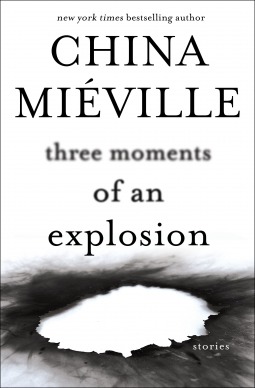 Format read: ebook provided by the publisher via Edelweiss
Format read: ebook provided by the publisher via Edelweiss

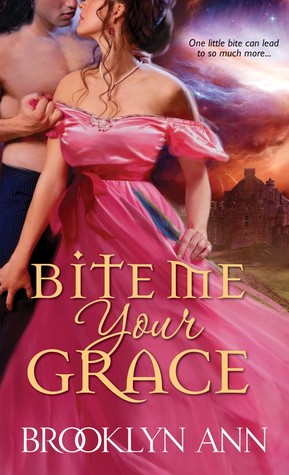 Format read: ebook provided by the publisher via NetGalley
Format read: ebook provided by the publisher via NetGalley

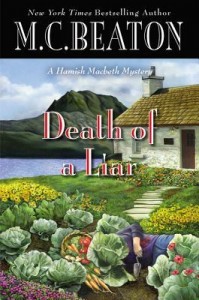
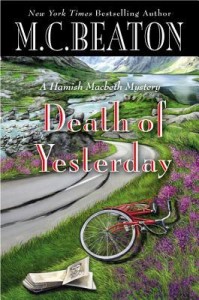 As usual, nothing about this crime is exactly as it appears. Hamish starts out investigating a lonely death and finds himself poking into a religious cult that is fronting for both a long con and a drug running gang. He eventually gets to the right perpetrators, and most importantly finds the money, but it takes more than the usual number of red herrings, and proceeds nicely through the Macbeth series standard formula (see
As usual, nothing about this crime is exactly as it appears. Hamish starts out investigating a lonely death and finds himself poking into a religious cult that is fronting for both a long con and a drug running gang. He eventually gets to the right perpetrators, and most importantly finds the money, but it takes more than the usual number of red herrings, and proceeds nicely through the Macbeth series standard formula (see 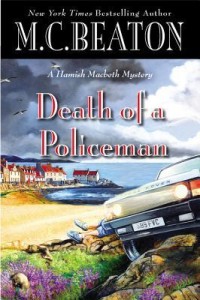 Escape Rating C+: I read three of the Hamish Macbeth books in a row, after not having read one for several years. In addition to
Escape Rating C+: I read three of the Hamish Macbeth books in a row, after not having read one for several years. In addition to 
 Cass: First things first, I (quite unexpectedly) adored Never Deal With Dragons. Myrna was a far cry from the usual UF/PNR heroine. She wasn’t The One, didn’t specialize in Snapping Necks and Breaking Balls, and wasn’t burdened by a Tragic Past.
Cass: First things first, I (quite unexpectedly) adored Never Deal With Dragons. Myrna was a far cry from the usual UF/PNR heroine. She wasn’t The One, didn’t specialize in Snapping Necks and Breaking Balls, and wasn’t burdened by a Tragic Past. Cass: Liar! You wanted to bask in my disgust and outrage. Also, I completely and utterly forgot how much I hated Carol in the second book. So utterly useless.
Cass: Liar! You wanted to bask in my disgust and outrage. Also, I completely and utterly forgot how much I hated Carol in the second book. So utterly useless.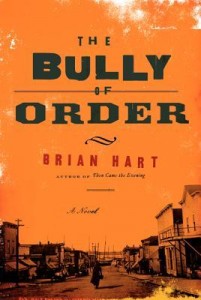
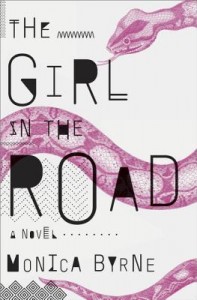
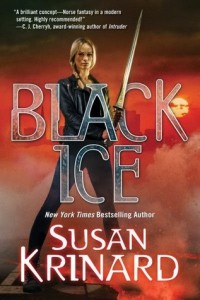
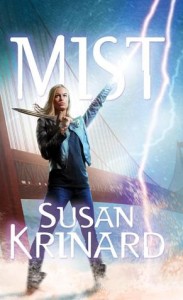 Black Ice is the followup to the first book in this series, Mist (reviewed
Black Ice is the followup to the first book in this series, Mist (reviewed 